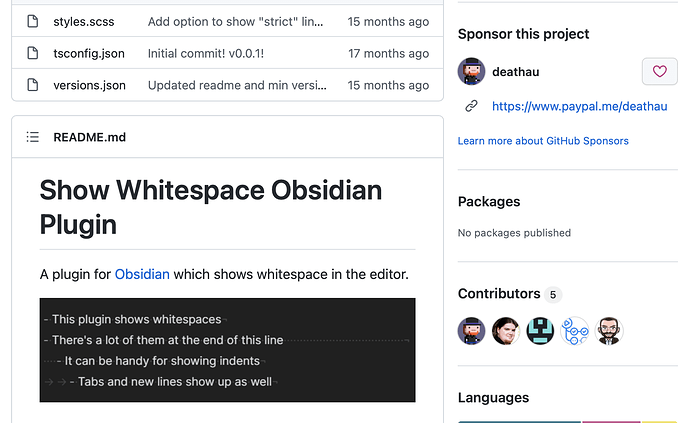Thanks for the detailed answers.
Plugins are removed from the plugin list by request of the original author
- Feel Obsidian needs to be proactive in removing plugins that have been—or appear to have been—abandoned.
- Too much lint left in the system is making things increasingly murky.
- Reserve the plugin directory for plugins with recent updates.
- Users can still find old plugins on GitHub.
- If a developer is no longer active and / or simply doesn’t ask for the plugin to be removed, will it stay in the plugin directory forever, even if that leads to frustration for countless users?
Many developers encourage users to ‘sponsor’ plugins. Think it reflects poorly on Obsidian if users are financing plugins that don’t work or that stop working after a short period of time. Think it makes users wary about sponsoring any developer (or even the app itself), which is a real loss for active developers.
It’s also a pain for users who design their work around plugins that then get abandoned—although most of us know the voluntary nature of much of what happens in and around Obsidian and the risks that that brings.
For me, these issues are beginning to add too much grit to the work that I do in Obsidian. I am trying to cut out community plugins and to stick with the core offering only, but that also means that I am having to use other apps and that I am slowly drifting away from using Obsidian. Last year, I recommended Obsidian to everyone I know. Now, I don’t. Perhaps I’m an outlier, but from the users I know outside this forum, I don’t think I am.
Angel
EDIT
As an example (NOT a direct criticism of one developer), this plugin has not been updated in fifteen months; it does not work with the current editor; and issues are unacknowledged by the developer. It is still in the plugin directory, and it is still asking for sponsorship from users. And trusting users expect it to work because they find it in the plugin directory. Can that be right and fair? How can that look good for Obsidian?
